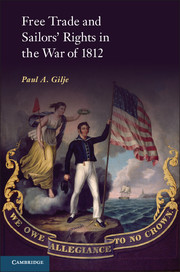11 - Indians in the Way
Published online by Cambridge University Press: 05 March 2013
Summary
If much of the interest in expansion before 1812 centered on the trans-Appalachian West, then the biggest problem for the United States was that there were Indians in the way. These Indians were both diverse and dynamic. Between the Mississippi River and the region settled by European Americans, Native Americans spoke a wide variety of languages, usually lived in villages or towns, and practiced a mixed economy dependent on agriculture (work normally done by women), hunting (work normally done by men), and trade. Although European Americans identified specific tribes among the Indians, Native American political structure did not fit any neat proto-state categories, and authority within their communities was usually dispersed and diffuse. There were no chiefs who could dictate policy or speak for an entire people. The so-called Creek nation, for example, really represented a cluster of towns in what is now Georgia and Alabama divided into clans without any central authority. Moreover, as a result of migrations in the eighteenth century, many Indian towns included individuals from a variety of different groups. The Shawnee had five major divisions, and had settlements spread across much of the Ohio River Valley, yet many Shawnee also lived in towns with other Indian groups.
- Type
- Chapter
- Information
- Free Trade and Sailors' Rights in the War of 1812 , pp. 137 - 147Publisher: Cambridge University PressPrint publication year: 2013



